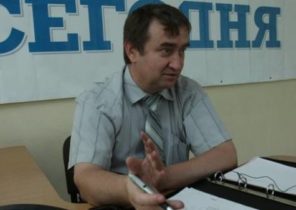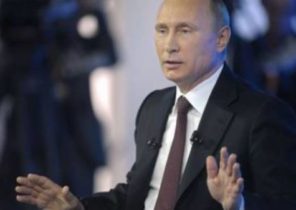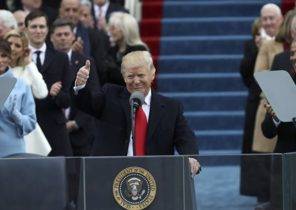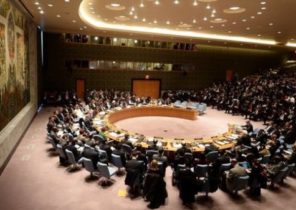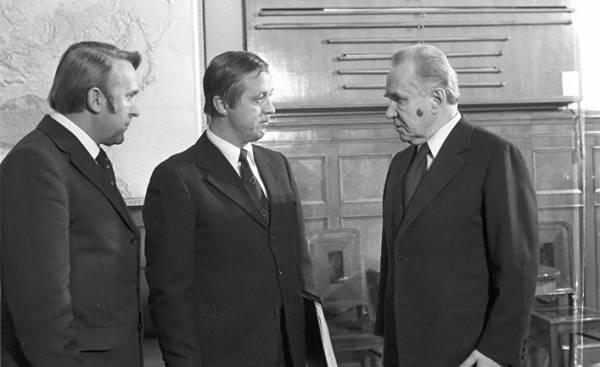
According to Reuters, the Russian Institute for strategic studies, RISS established by the President of the Russian Federation, received in June 2016 job to influence the elections of the President of the United States.
The main goal was to prevent the election of President Hillary Clinton (Hillary Clinton), vtoroocherednoy task was to demonstrate the failure of the political system of the United States. Issues of Northern Europe in the Russian Institute of strategic research has been a Finnish citizen and Professor, known in Finland as associate Professor Johan Backman (Johan Bäckman) who openly and freely protects the interests of Russia in international media and research institutions.
The Reuters should not cause much consternation in Helsinki, because much of the politicians in power, the hard way felt like the Soviet Union, and later Russia promoted its interests in Finland.
Soviet diplomats, most of whom were officers of the state security service of the Soviet Union, the KGB, openly told what policy they were prepared to set up inter-state relationship “based on trust”.
The struggle for the favor of Moscow was part of the political everyday life of Finland. The one who didn’t take part in this struggle, experienced difficulties. The majority of Finns were familiar with the conditions of the struggle.
Still, it would be appropriate to go into more detail about what the struggle was about: why some worked better than others.
The question of the Secretary of the Social democratic party of Finland (SDP) decided in June 1969, when the newspaper of the Social democratic Union of workers and smallholders (TPSL) Päivän Sanomat has published a list of candidates proposed by the Soviet Union. The correspondent of the newspaper “Pravda” in Helsinki immediately made this list for everyone to see in your paper. Secretary of the party was not known to anyone Kalevi Sorsa (Kalevi Sorsa), which two weeks later was named in the secret report of the GDR supporter of TPSL.
In the recently published the secret CIA report suggested that the election of Sorcy was dictated by the instructions from Moscow. The same opinion was expressed by one of the Pro-Soviet candidates for the post of Secretary of the party.
From the archives of the KGB, published by Vasily Mitrokhin in the UK in 2014, it becomes clear that the chief editor of the newspaper Päivän Sanomat Eero Santala (Eero Santala) was a KGB agent named “Samuel”.
In the winter of 1972 he was entrusted with another important task. The KGB agent albert Akulov has told, “Samuel” correspondence of the Deputy Errata Georg (Georg C. Ehrnrooth), and Päivän Sanomat published it with the purpose of denigrating the reputation of Parliament, which was typical of the KGB “active measure.”
In 1972, for the application of such measures, it was enough that a member of the Finnish Parliament was familiar with the member of Congress from the Republican party. Ernat was branded “fascist”, and even the Swedish people’s party in Finland (RKP) which member he was, was inexorable.
According to information contained in the Mitrokhin archive, as well as from various defectors, the KGB, the source was indeed “trusted contact” of the Communist party of the Soviet Union. It is recorded in the aide-Memoire that was handed to him during the presentation of a valuable gift on the occasion of the birthday party in 1980.
Published in the archives of Vladimir Bukovsky stated that Sorsa especially “collaborated confidentially” with the Soviet Union in the Socialist international, which in may 1978, he was Chairman of the Council on disarmament.
Hardly surprising the fact that the Mitrokhin archive is and other information about Corse. In August 1982, the station chief of the KGB in Helsinki was instructed to provide “all sorts of political and other support” Arse again became Prime Minister.
In practice, this support extended to the Prime-Minister. He achieved his position in another way. In October 1982, he was able to meet with the leadership of the CPSU, which decided his fate as a “statesman”.
Support was provided to Finnish and helpers of the KGB, which was reflected in the fact that enemies Corsi had a rough time. In the government of 1987 to find a trace of the KGB in Helsinki.
Published in 2004, the work of researchers Michael of Place (Michael Ploetz) and Hans-Peter Muller (Hans-Peter Müller) called “peace Movement, which was ruled from afar” (Ferngeklenkte Friedensbewegung), an assessment of the role of the Socialist international in 1978-1983, based on the original sources.
They ruled from Moscow, the purpose of which was to split the ranks of NATO. The book claims that Corsi political career was suddenly interrupted in the 1990-ies, when the Soviet archives it became known that he was “involved in secret cooperation with Moscow.”
In Finland, officials believe that Sorsa worked for the national security of Finland and it is not necessary to blame for the fact that it was the intelligence of the KGB and its imaginary diplomats (of which 12 were expelled in the summer of 1992) and Finnish investigators of the KGB rezidentura. Based on the political assessment by the security Police of Finland (SUPO) defended the reputation Corsi and his entourage.
In any case, 1998-2003 Sorsa still played an important role in the political life of Finland, and in public life, particularly in debates against joining NATO, as well as in the balance of power in the 2000 presidential election. The issue of Russian interference in the elections of the President of Finland may be the key to assessing the political upheavals of the 2000s years.
